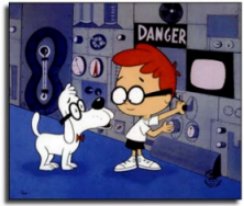Sen. Joseph Biden (D-Delaware) March 19, 1997: “But I also respectfully suggest that everyone who is nominated is entitled to have a shot, to have a hearing and to have a shot to be heard on the floor and have a vote on the floor.”
Sen. Dianne Feinstein (D-California) September 11, 1997: “Let’s bring their nominations up, debate them if necessary, and vote them up or down.”
Sen. Edward Kennedy (D-Massachusetts)February 3, 1998: “We owe it to Americans across the country to give these nominees a vote. If our Republican colleagues don’t like them, vote against them. But give them a vote.”
Sen. Patrick Leahy (D-Vermont) May 10, 2000: “The Founding Fathers certainly intended that the Senate advise as to judicial nominations, i.e., consider, debate, and vote up or down. They surely did not intend that the Senate, for partisan or factional reasons, would remain silent and simply refuse to give any advice or consider and vote at all.”
Sen. Barbara Boxer (D-CA) 5/14/97 : “It is not the role of the Senate to obstruct the process and prevent numbers of highly qualified nominees from even being given the opportunity for a vote on the Senate floor.”
Sen. Dianne Feinstein (D-CA): “It is our job to confirm these judges. If we don’t like them, we can vote against them.” (Congressional Record, 9/16/99)
Sen. Dianne Feinstein (D-CA): “Our institutional integrity requires an up-or-down vote.” (Congressional Record, 10/4/99)
Sen. Tom Harkin (D-IA): “[The filibuster process] is used … as blackmail for one Senator to get his or her way on something that they could not rightfully win through the normal processes.” (Congressional Record, 1/4/95)
Sen. Tom Harkin (D-IA): “I urge the Republican leadership to take the steps necessary to allow the full Senate to vote up or down on these important nominations.” (Congressional Record, 9/11/00)
Sen. Ted Kennedy (D-MA): “We owe it to Americans across the country to give these nominees a vote. If our Republican colleagues don’t like them, vote against them. But give them a vote.” (Congressional Record, 2/3/98)
Sen. Ted Kennedy (D-MA): “It is true that some Senators have voiced concerns about these nominations. But that should not prevent a roll call vote which gives every Senator the opportunity to vote ‘yes’ or ‘no.’ ... Parties with cases, waiting to be heard by the federal courts deserve a decision by the Senate.” (Congressional Record, 9/21/99)
Sen. Patrick Leahy (D-VT): “I hope we … will accept our responsibility and vote people up or vote them down. … If we want to vote against them, vote against them.” (Congressional Record, 10/22/97)
Sen. Patrick Leahy (D-VT): “Now, every Senator can vote against any nominee. … But it is the responsibility of the U.S. Senate to at least bring them to a vote.” (Congressional Record, 10/22/97)
Sen. Patrick Leahy (D-VT): “ "I have stated over and over again … that I would object and fight against any filibuster on a judge, whether it is somebody I opposed or supported …” (Congressional Record, 6/18/98)
Sen. Patrick Leahy (D-VT): “[E]arlier this year … I noted how improper it would be to filibuster a judicial nomination.” (Congressional Record, 10/14/98)
Sen. Patrick Leahy (D-VT): “[I]f the person is otherwise qualified, he or she gets the vote. … Vote them up, vote them down.” (Congressional Record, 9/21/99)
Sen. Harry Reid (D-NV): “[W]e should have up-or-down votes in the committee and on the floor.” (CNN’s “Evans, Novak, Hunt & Shields,” 6/9/01)
Sen. Chuck Schumer (D-NY): “[W]e are charged with voting on the nominees. The Constitution does not say if the Congress is controlled by a different party than the President there shall be no judges chosen.” (Congressional Record, 3/7/00)
Carl Levin (D-MI) "If a bipartisan majority of the U.S. Senate is prepared to vote to confirm the President's appointment, that vote should occur." (Cong. Rec., 6/21/95, S8806)
Compiled by
Free Republic.















 .
. .
.